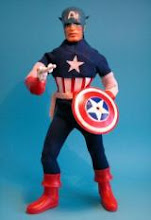 Dean King extensively researched this event, and wrote the book Skeletons on the Zahara by focusing on two critical books published right after the events. Both the captain, James Riley, and one of the crew members, Archibald Robbins, published accounts of their experiences, and both of these books because best sellers in their time. These books were read by people as powerful as Lincoln, and it is assumed that they helped to support the abolitionist movement.
Dean King extensively researched this event, and wrote the book Skeletons on the Zahara by focusing on two critical books published right after the events. Both the captain, James Riley, and one of the crew members, Archibald Robbins, published accounts of their experiences, and both of these books because best sellers in their time. These books were read by people as powerful as Lincoln, and it is assumed that they helped to support the abolitionist movement. What of the best parts of the early chapters of this book was the discussion of international relations at the time. America and Britain had just ended a war that saw the White House burned down. No one was sailing commercial or trading ships at the time due to the war, so this was one of the first trading vessels sent out after the war.
It is amazing to see how the nomads of the Sahara lived in the early 1800s. They lived off of  very little, just some camel milk and rancid water for weeks at a time. It seems like a large part of the local economy came from shipwrecks, allowing the nomads to get plenty of gold, cloth, food, and other goods. The nomads roam and trade and occasionally join large camel trains to make very large deals in and around the large local cities.
very little, just some camel milk and rancid water for weeks at a time. It seems like a large part of the local economy came from shipwrecks, allowing the nomads to get plenty of gold, cloth, food, and other goods. The nomads roam and trade and occasionally join large camel trains to make very large deals in and around the large local cities.
 very little, just some camel milk and rancid water for weeks at a time. It seems like a large part of the local economy came from shipwrecks, allowing the nomads to get plenty of gold, cloth, food, and other goods. The nomads roam and trade and occasionally join large camel trains to make very large deals in and around the large local cities.
very little, just some camel milk and rancid water for weeks at a time. It seems like a large part of the local economy came from shipwrecks, allowing the nomads to get plenty of gold, cloth, food, and other goods. The nomads roam and trade and occasionally join large camel trains to make very large deals in and around the large local cities.What struck me the most about this book is what the American sailors actually went through as slaves in the Sahara. They went without water to the point where their tongues were swollen and brittle and their bodies were poaching joint fluid just to keep them going. They were beaten and forced to work. They were starved to the point that they they lost over 100 pounds in two months. They were forced to drink their own urine and camels' urine. It amazes me what these men went through. Every time they were on the verge of giving up something would happen to bring their hopes up just a bit.
 Captain Riley was an amazing man. He was able to convince one of his masters to buy up four other men so that he could bring them to freedom. He told his master that he had a friend in Morocco (where the Americans and the Europeans had embassies) who would be willing to buy their freedom. This was a lie, but he never gave up. He pushed it and pushed it, assuming he would figure it out when the time came. Ultimately, obviously, he was able to make it out, but not all of his men were so successful.
Captain Riley was an amazing man. He was able to convince one of his masters to buy up four other men so that he could bring them to freedom. He told his master that he had a friend in Morocco (where the Americans and the Europeans had embassies) who would be willing to buy their freedom. This was a lie, but he never gave up. He pushed it and pushed it, assuming he would figure it out when the time came. Ultimately, obviously, he was able to make it out, but not all of his men were so successful.This is a fantastic and incredibly interesting piece of history and you should check it out.
It could be worse, you could be a slave on the Sahara, forced to drink your own urine and starving to death while being beaten by people you are terrified of and do not understand. (See? That's pretty bad huh?)

1 comment:
Tom, stealing my photo and then earning commission off links to other sites is really not very nice. This is copyright infringement and it can lead to fines of up to 150,000 US dollars
Adding insult to injury, there is not even a credit line or link to my site!
http://www.photographersdirect.com/cbtp/stockphoto.asp?imageid=68476
Post a Comment